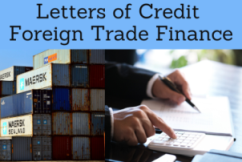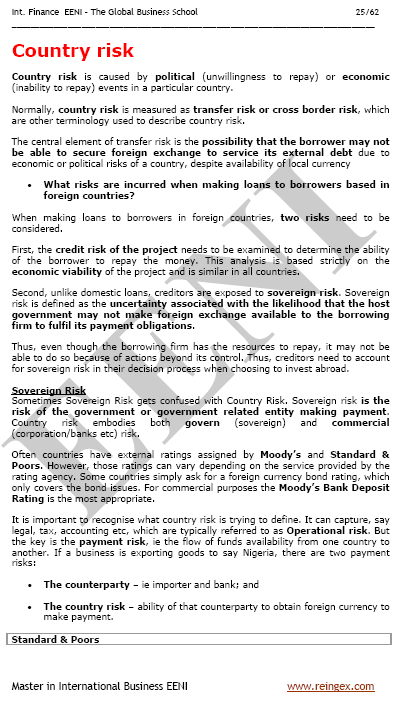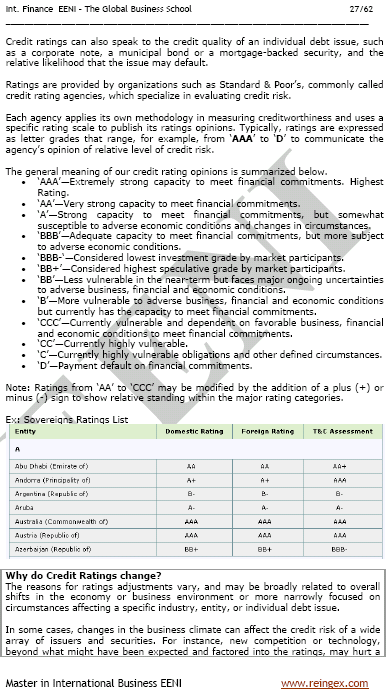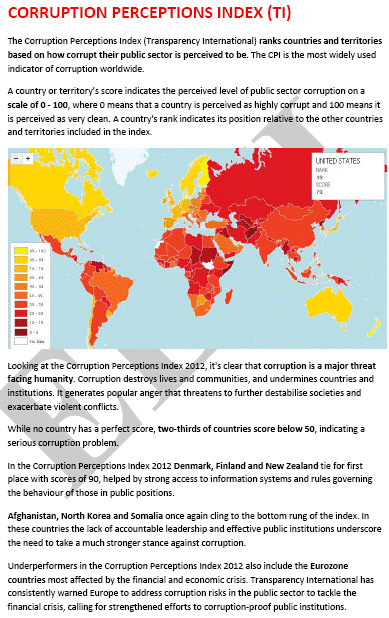Foreign Trade Finance

International trade Finance. Country risk. FOREX

- Introduction to the international trade finance
- Export/import financing
- Pre-shipment finance
- International risks: payment, foreign exchange, counterparty, and delivery
- Country risk
- Sovereign risk
- Credit ratings
- Evaluation and classification of the Country Risk
- Corruption perceptions index
- Export credits (OECD)
- Bank-guaranteed trade finance (documentary trade)
- Not-bank-guaranteed trade finance
- Supply chain finance
- Purchase order finance (pre-shipment finance)
- Inventory finance (warehouse)
- Case Study
- The case of Thailand and South Africa
- Introduction to the Islamic Banking
- FOREX
- International Bonds and Guarantees
The aims of the subject “International trade Finance” are the following:
- To familiarise the student with the various methods of finance both for exports and imports
- To understand the risks associated with the foreign trade operations
- To know how to manage the pre-financing and export financing


The Subject “International trade Finance” belongs to the following Online Programs taught by EENI Global Business School:
Masters: International Business, Foreign Trade and Marketing.

Languages:  or
or  Financement
Financement
 Financiación
Financiación  Financiamento.
Financiamento.
Credits of the Subject “International Trade Finance”: 4 ECTS.
International Trade Finance:

International Trade Finance.
There are two basic forms for Financing Foreign Trade transactions:
- Import finance
- Export finance
Both can be performed in the currency of the exporter (for example, Euros) or any other fully convertible currency agreed by both parties.
In the second case, the company assumes certain risks as the exchange rates difference. However, it can also profit from trading in another currency if there is a rise in the foreign currency value.
The financial transactions in Foreign Trade can be performed in the currency of the exporter/importer or a third currency.
In many cases, the export companies must facilitate financing for their clients mainly due to the market requirements. In the Foreign Exchange Market, the dealers trade in currencies.
Product and service exports, foreign direct investment and foreign loans forms the currency supply whereas the currency demand consists of imports, foreign direct investment and other factors.
These operations stimulate the buying and selling of currencies in a market governed by the supply and the demand. If a payment for a service provided or for a product delivered to a foreign client is in a currency other than in which the exporter usually operates, the exporter is exposed to the risk of exchange rate fluctuation.
In any exporting or importing transaction there is a range of risks to be considered including:
- Payment Risk
- Performance Risk
- Foreign Exchange Risk
- Interest Rate Risk
- Counterparty/Bank Risk
- Country Risk
- Delivery Risk
The underlying commercial contract should clearly state the.
- Description of the products
- Delivery terms, when and by what means the payment is to be made
- Required documents, which will allow the importer to obtain the delivery of the goods and to arrange the clearance through the customs
- Currency in which the settlement is to be effected and
- Any specific requirements attaching to the shipment
Country risk is caused by political (unwillingness to repay) or economic (inability to repay) events in a particular country. Normally, the country risk is measured as transfer risk or cross-border risk, which is another terminology used to describe the country risk.
The Sovereign risk is the risk of the Government, or Government-related entity, making the payment. The Country risk embodies both govern and commercial risk.

The Corruption perceptions index measures the perceived level of the public-sector corruption in 180 countries economies.


